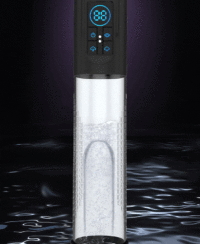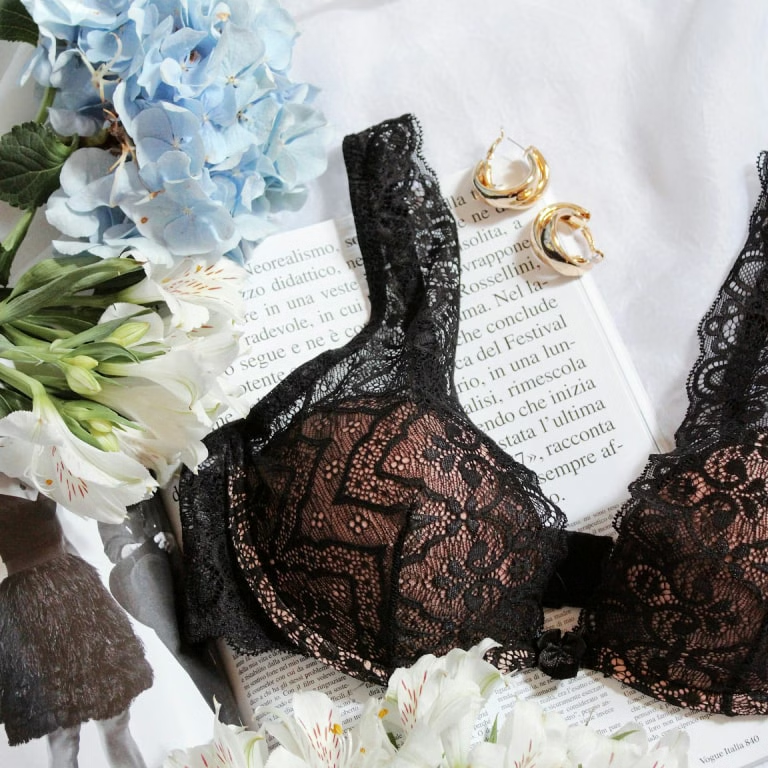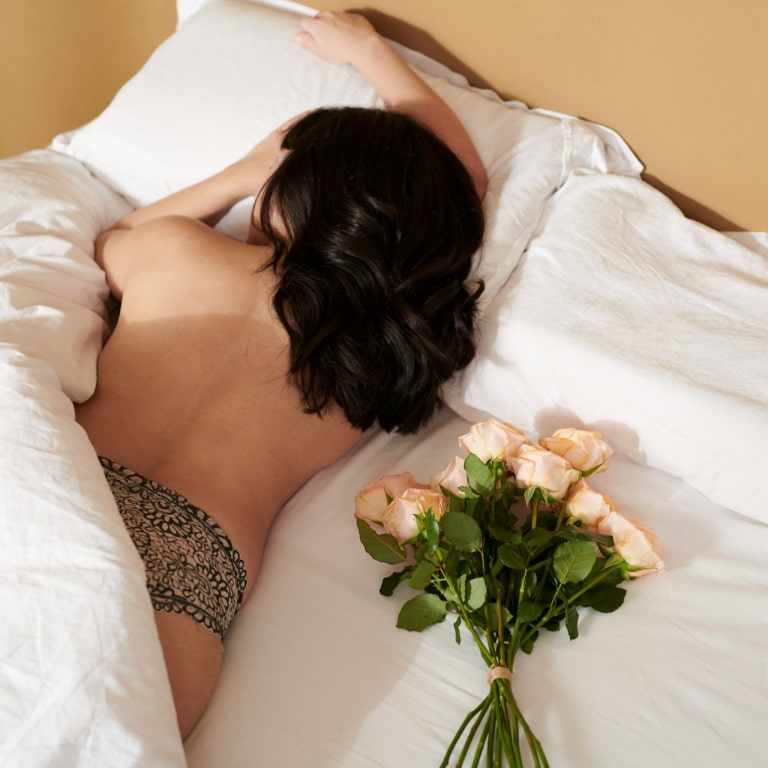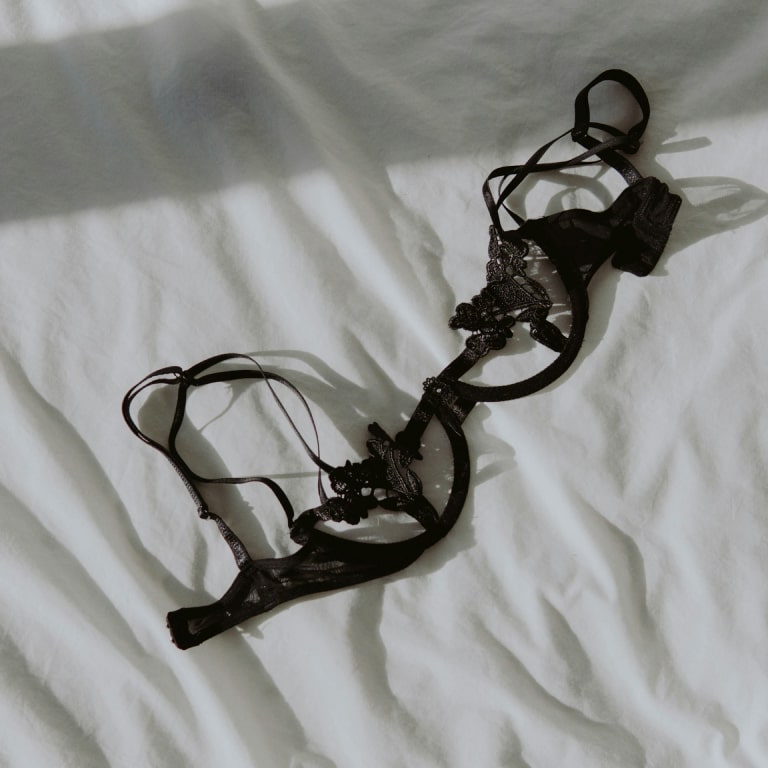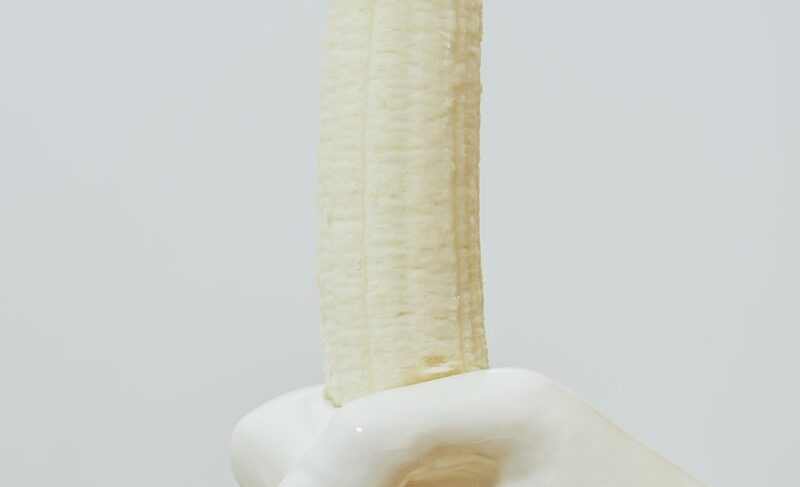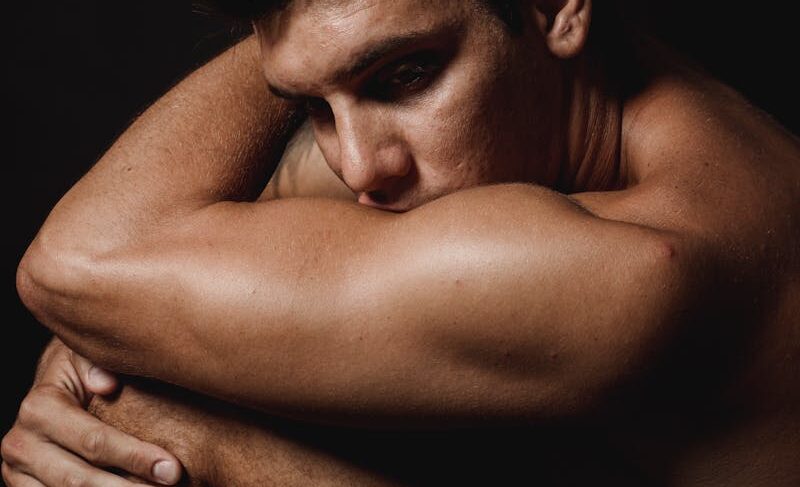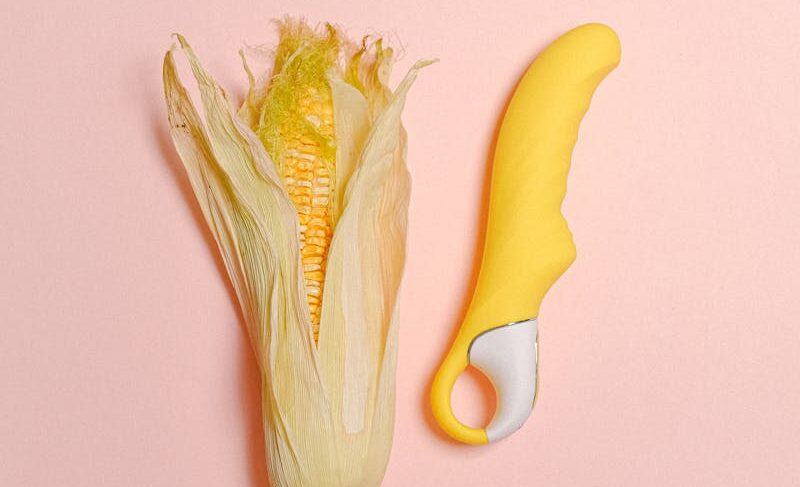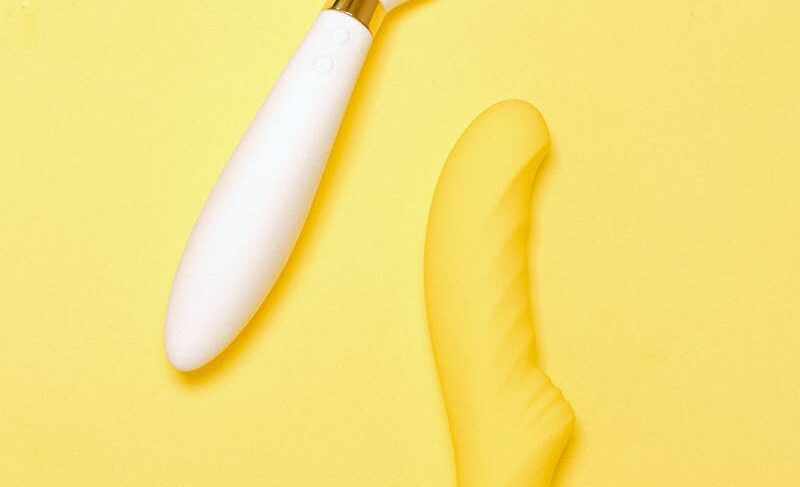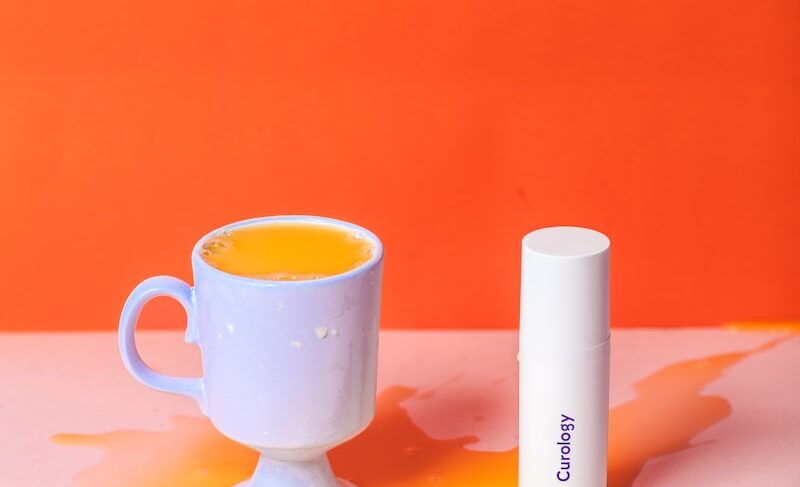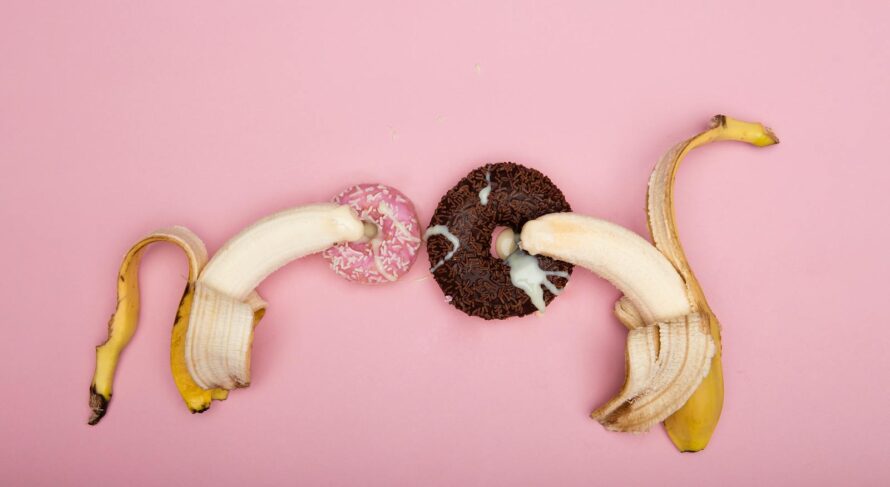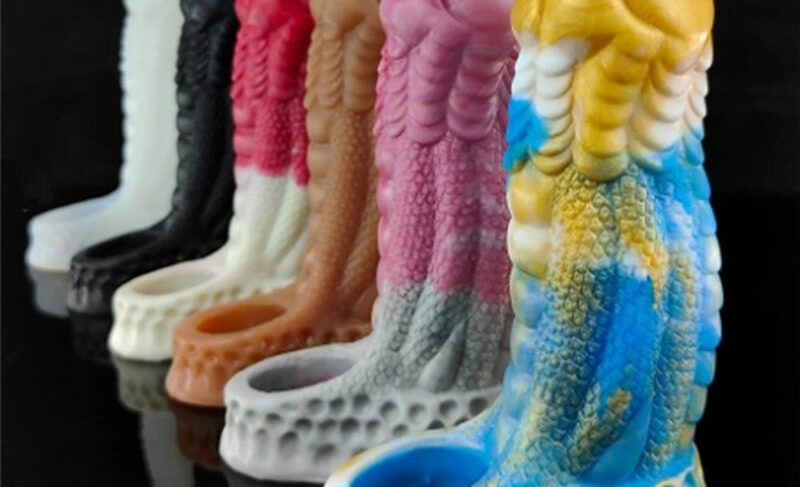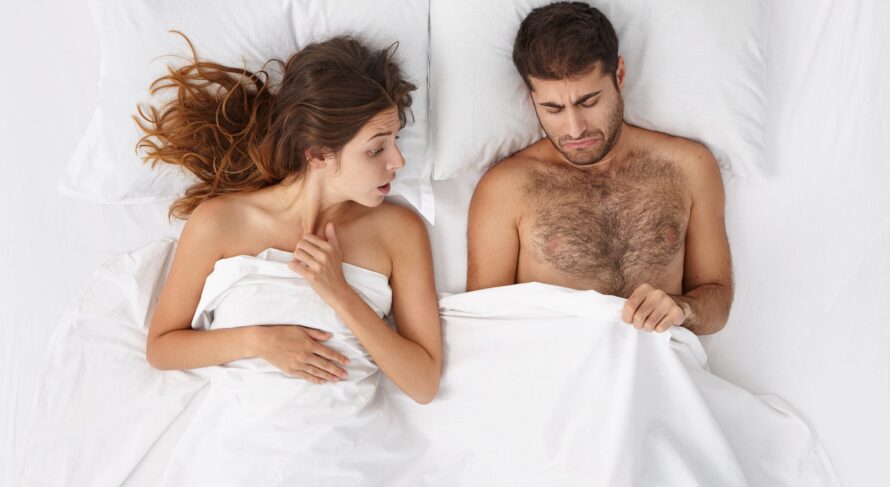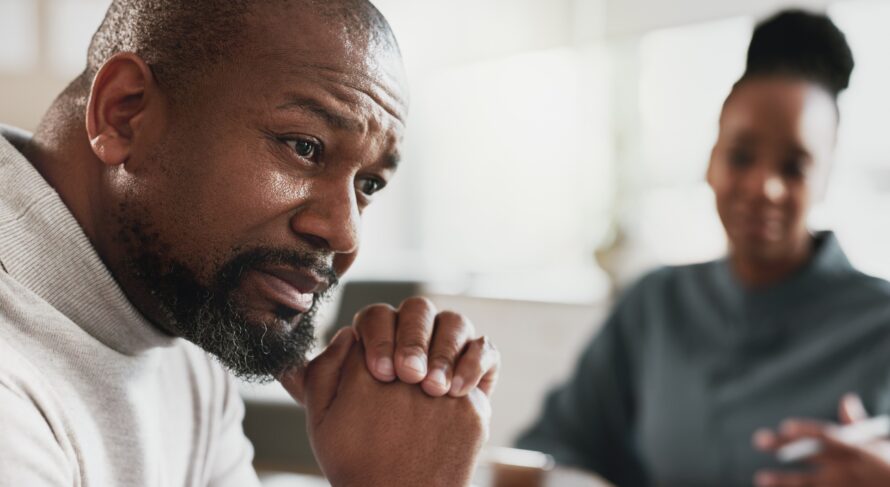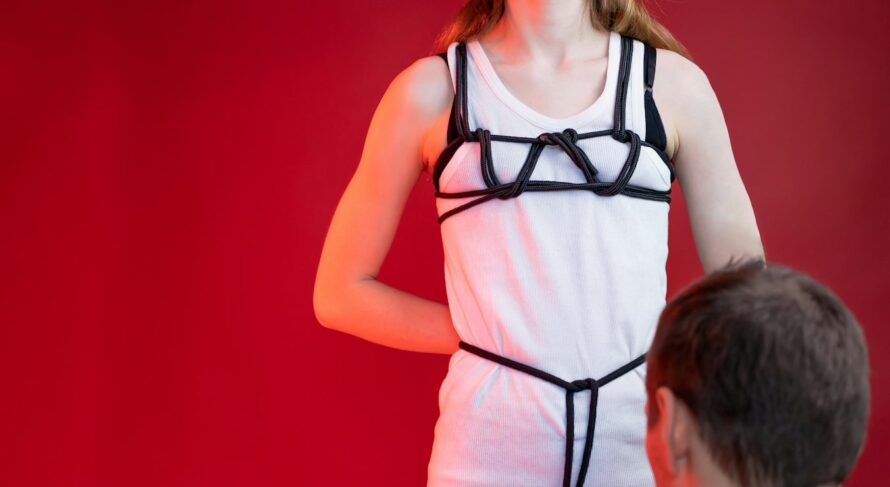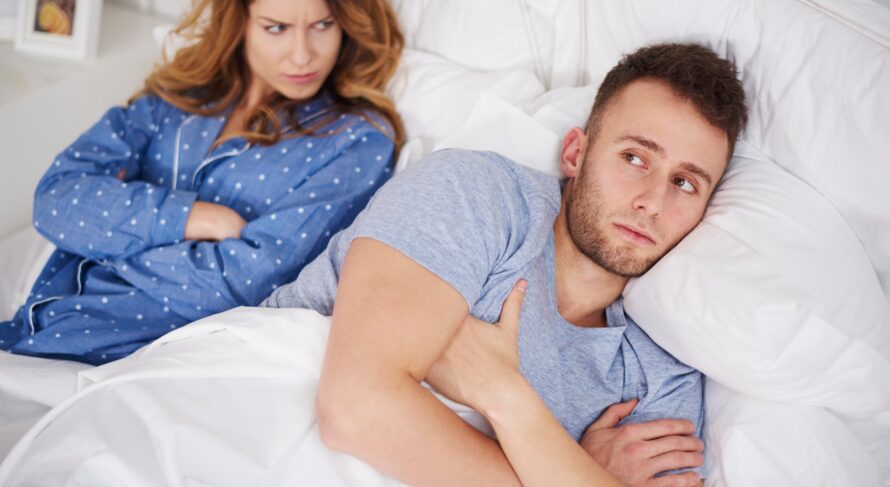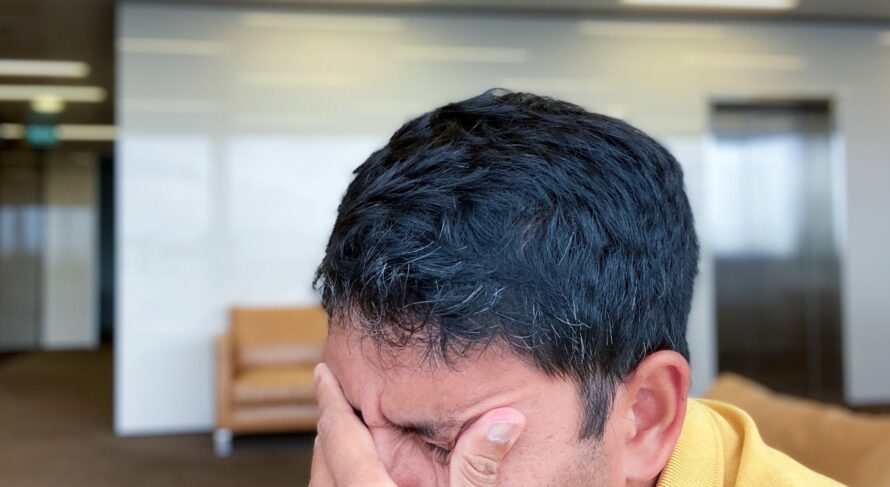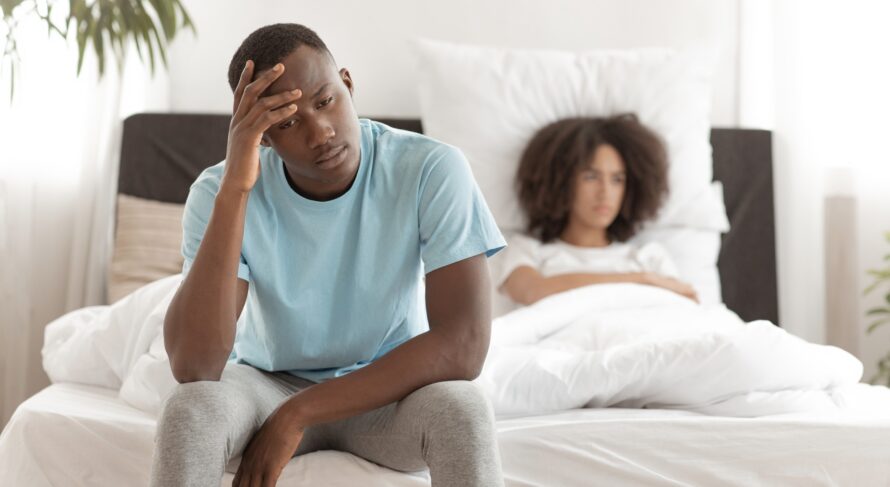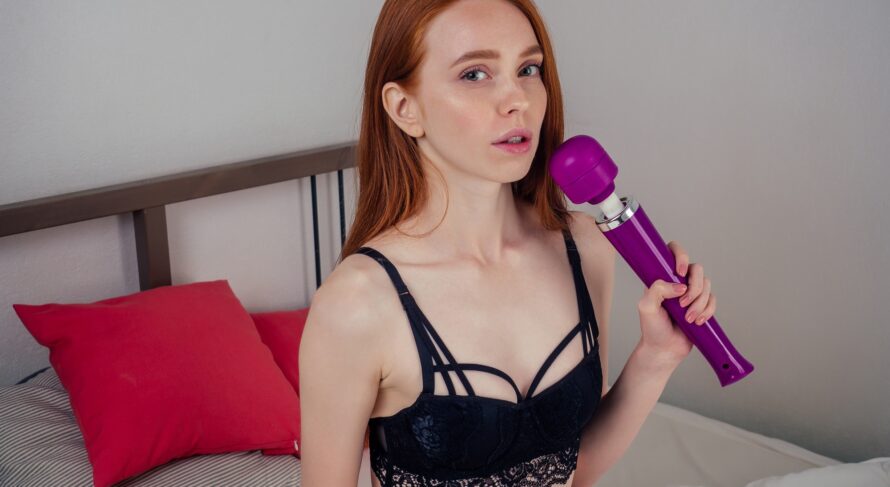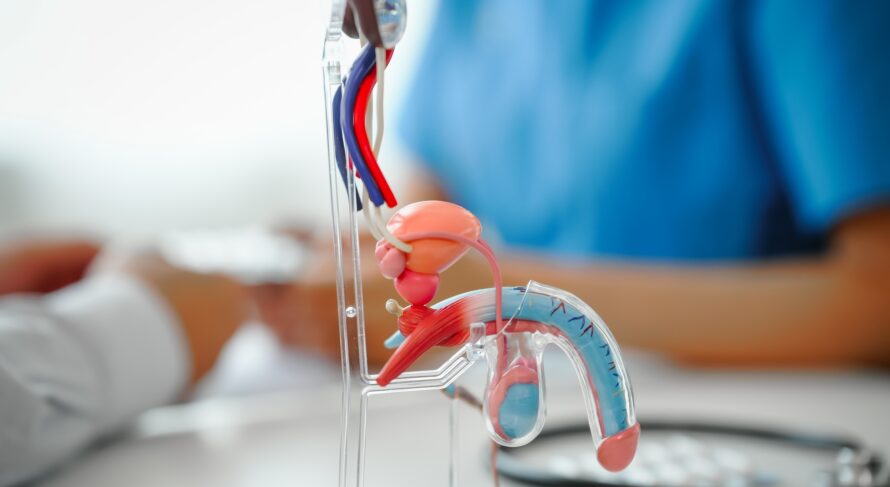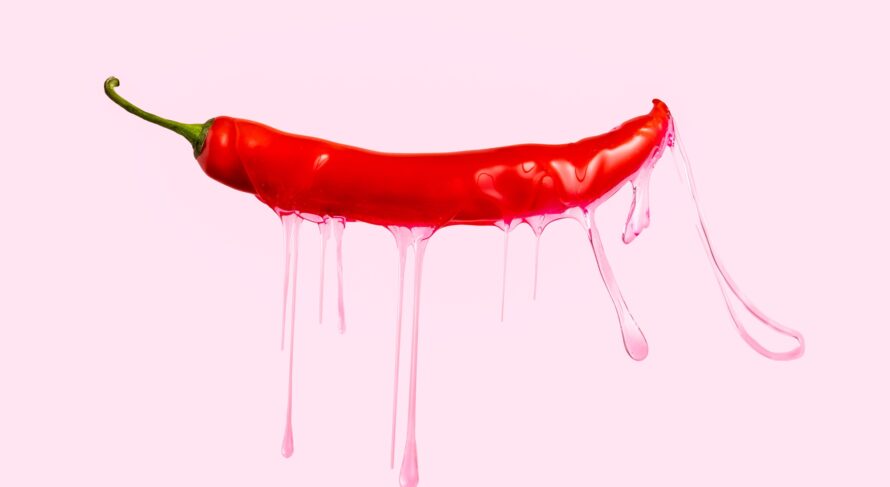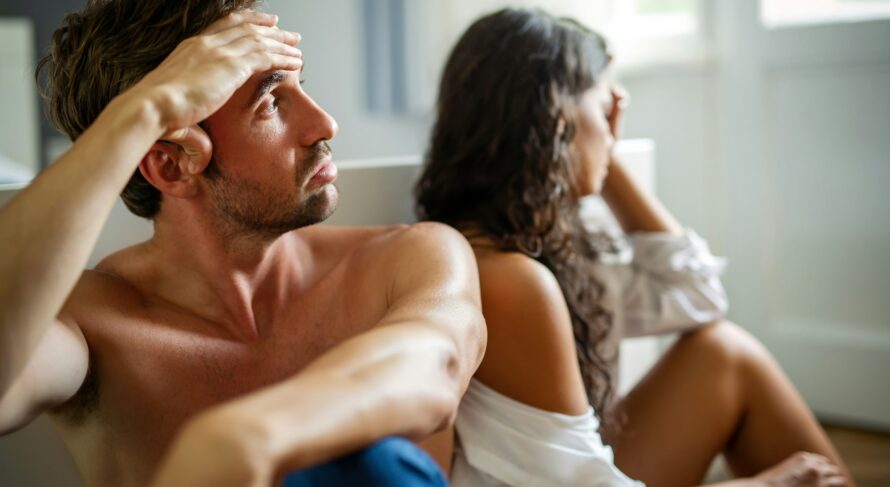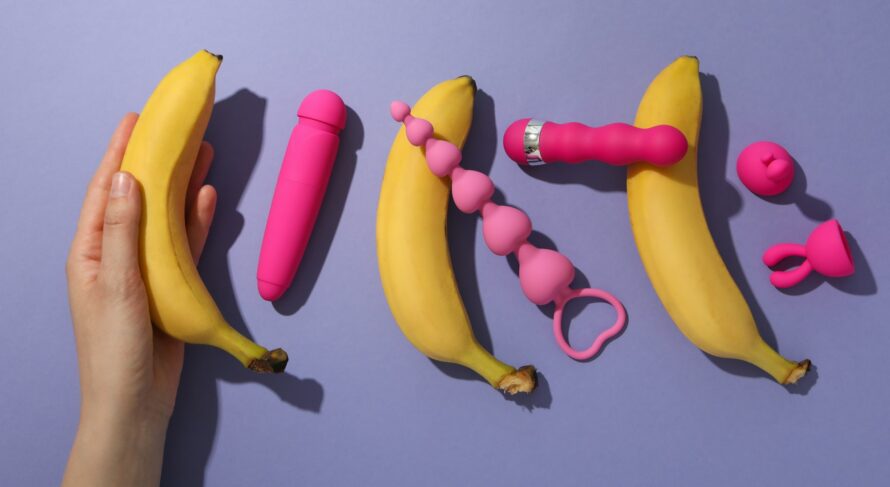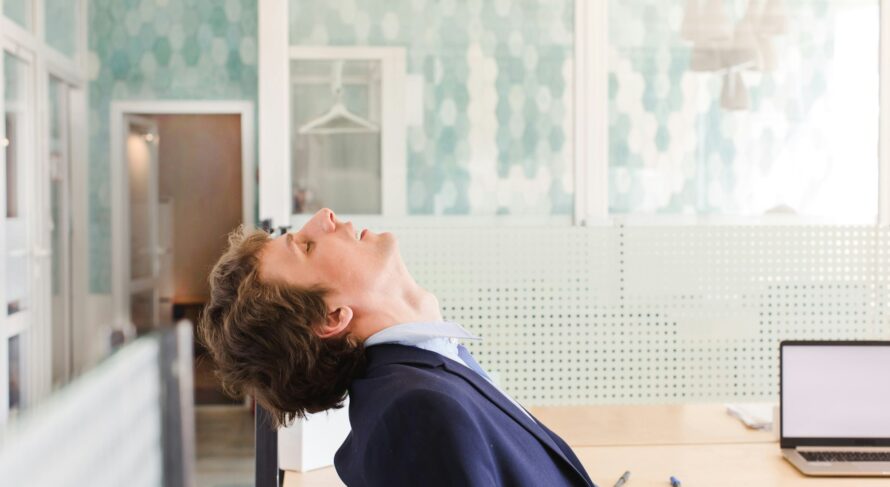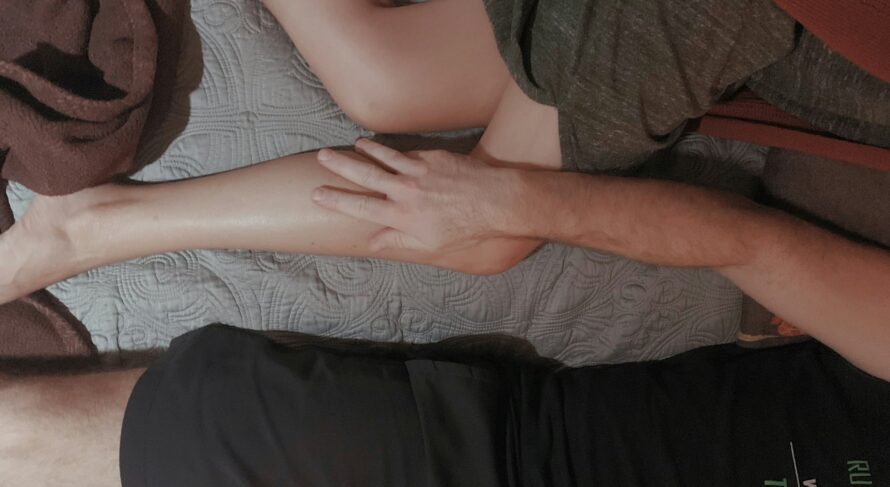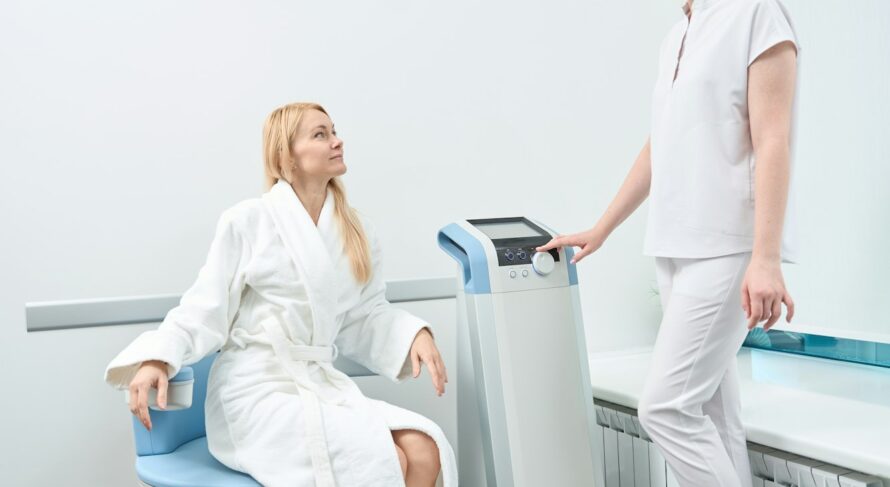Holistic Approaches to Overcoming Performance Anxiety in Men: Integrating Physical and Mental Health
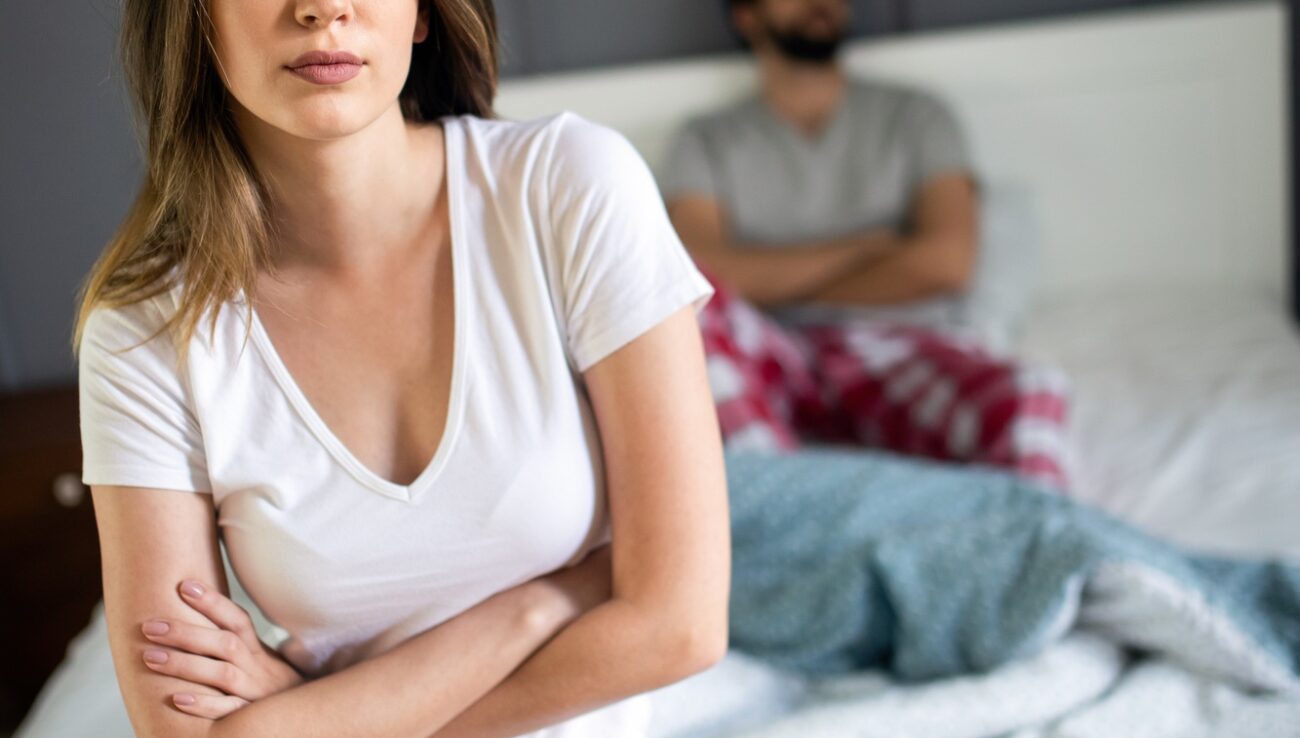
Key Takeaways
- Holistic Integration: Overcoming performance anxiety in men requires a comprehensive approach that seamlessly integrates both physical and mental health strategies.
- Physical Health Foundations: Regular exercise, balanced nutrition, adequate sleep, and mind-body practices significantly contribute to reducing anxiety and enhancing sexual performance.
- Mental Health Strategies: Cognitive Behavioral Therapy (CBT), mindfulness meditation, stress management techniques, and building self-esteem are crucial for managing performance anxiety.
- Sexual Wellness Tools: Incorporating sex toys from SexToyForYou.com can enhance intimacy, reduce performance pressure, and foster a more relaxed sexual environment.
- Case Studies and Statistics: Real-world examples and statistical data underscore the effectiveness of holistic approaches in managing performance anxiety.
- Practical Implementation: Step-by-step guidance on integrating physical and mental health strategies provides a clear roadmap for overcoming performance anxiety.
- Comprehensive Support: Seeking professional help and maintaining open communication with partners are essential components of a successful holistic approach.
Table of Contents
- Introduction
- Understanding Performance Anxiety in Men
- Holistic Approaches to Overcoming Performance Anxiety
- Physical Health Strategies
- Mental Health Strategies
- Integrative Techniques
- Case Studies
- Statistics on Holistic Approaches to Performance Anxiety
- Visual Comparison: Holistic Techniques
- Practical Steps to Implement Holistic Approaches
- FAQ
- 1. What Are the Most Effective Holistic Techniques for Overcoming Performance Anxiety?
- 2. How Do Physical Health Improvements Impact Performance Anxiety?
- 3. Can Sexual Wellness Tools Alone Manage Performance Anxiety?
- 4. How Important Is Professional Support in a Holistic Approach?
- 5. What Lifestyle Changes Are Most Beneficial for Reducing Performance Anxiety?
- Conclusion
- References
Introduction
Performance anxiety in men, especially within the context of sexual activity, is a widespread issue that can significantly impact mental health, self-esteem, and intimate relationships. Traditional approaches to managing performance anxiety often focus solely on psychological interventions or medical treatments. However, adopting a holistic approach that integrates both physical and mental health strategies offers a more comprehensive and effective solution.
At SexToyForYou.com, we understand the multifaceted nature of performance anxiety and the importance of addressing both the mind and body to overcome it. This comprehensive guide explores holistic approaches to overcoming performance anxiety, providing insights, solutions, and practical techniques to help men build confidence, reduce anxiety, and enhance their overall well-being. By integrating psychological strategies, lifestyle changes, and supportive tools, men can achieve a balanced and fulfilling intimate life.
Understanding Performance Anxiety in Men
Definition
Performance anxiety, often referred to as “sexual performance anxiety,” is the persistent fear or worry about one’s ability to perform sexually. This type of anxiety can manifest as apprehension about maintaining an erection, achieving orgasm, or meeting a partner’s expectations. Unlike general anxiety, performance anxiety is specifically tied to sexual activity and can create a self-reinforcing cycle where fear of poor performance leads to actual performance issues, thereby increasing the anxiety (Baumeister, 2015).
Symptoms
Performance anxiety presents both physical and psychological symptoms, which can interfere with sexual performance and overall quality of life.
- Physical Symptoms:
- Erectile dysfunction (difficulty achieving or maintaining an erection)
- Premature ejaculation
- Increased heart rate
- Sweating
- Muscle tension
- Dry mouth
- Emotional Symptoms:
- Fear of failure
- Reduced self-esteem
- Heightened anxiety
- Frustration
- Behavioral Symptoms:
- Avoidance of sexual activity
- Withdrawal from intimate relationships
- Reliance on performance-enhancing aids
Causes
Performance anxiety can stem from a variety of psychological and physiological factors, including:
- Psychological Factors:
- Negative past sexual experiences
- Low self-esteem or self-confidence
- Relationship issues
- High levels of stress or pressure
- Fear of intimacy or vulnerability
- Physiological Factors:
- Chronic stress leading to hormonal imbalances
- Underlying health conditions such as cardiovascular disease or diabetes
- Side effects of medications
- Lifestyle factors like excessive alcohol consumption or smoking
Understanding the root causes of performance anxiety is crucial for developing effective strategies to manage and overcome it.
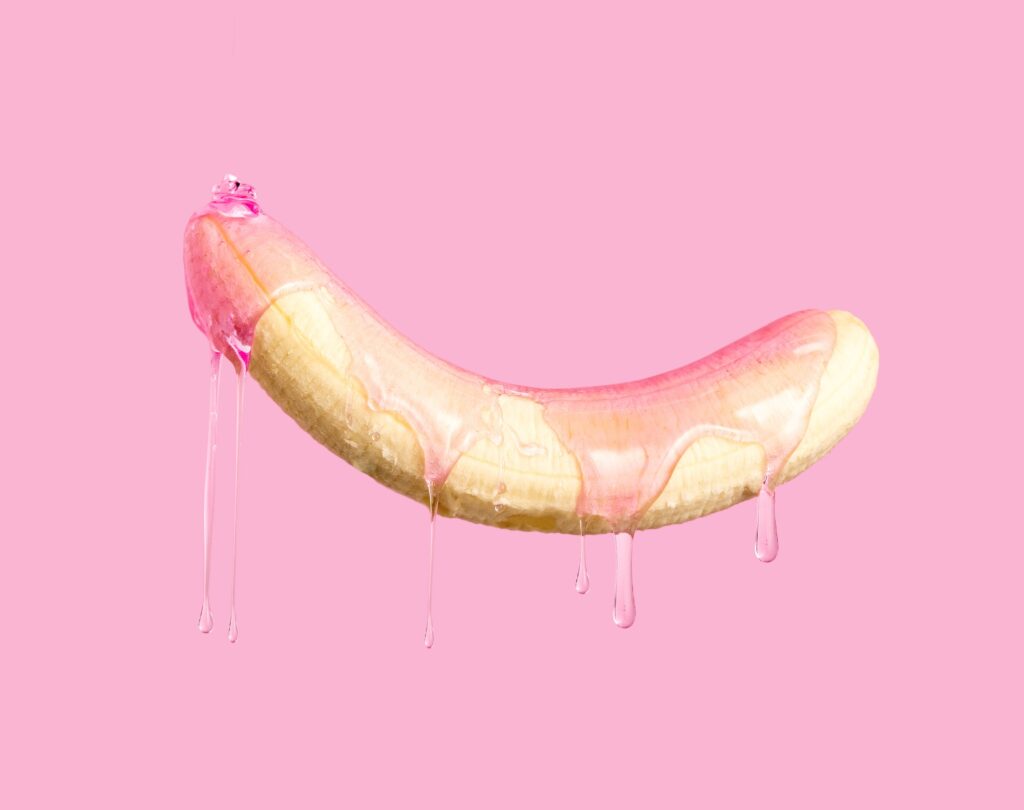
Holistic Approaches to Overcoming Performance Anxiety
Integrating Physical and Mental Health
A holistic approach to overcoming performance anxiety involves addressing both the physical and mental aspects of the condition. This integration ensures that all contributing factors are managed effectively, leading to sustained improvement and enhanced well-being.
Overview of Holistic Health
Holistic health is a comprehensive approach that considers the whole person—mind, body, and spirit—in the pursuit of optimal health and well-being (Hölzel et al., 2011). Rather than focusing solely on symptoms, holistic health strategies aim to balance all aspects of an individual’s life, promoting harmony and preventing illness. In the context of performance anxiety, holistic health integrates physical health strategies (like exercise and nutrition) with mental health techniques (such as therapy and mindfulness) to create a balanced and effective management plan.
Physical Health Strategies
Regular Exercise
Benefits:
Regular physical activity is one of the most effective ways to reduce anxiety and improve overall mental health. Exercise releases endorphins, which are natural mood lifters, and helps regulate stress hormones like cortisol.
Types of Exercises:
- Cardiovascular Exercises: Running, cycling, swimming, and brisk walking enhance heart health and boost endorphin levels.
- Strength Training: Weightlifting and resistance training improve muscle tone and self-confidence.
- Flexibility Exercises: Yoga and stretching enhance body awareness and relaxation.
- Mind-Body Exercises: Tai Chi and Pilates combine physical movement with mental focus, promoting overall well-being.
Example:
John, a 35-year-old marketing professional, incorporated a 30-minute brisk walk into his daily routine. Over three months, he noticed a significant reduction in his anxiety levels and an improvement in his sexual performance, attributing these changes to his regular physical activity.
Balanced Nutrition
Importance of Diet:
A balanced diet plays a crucial role in maintaining mental and physical health. Proper nutrition supports brain function, hormonal balance, and energy levels, all of which are essential for managing anxiety and enhancing sexual performance.
Foods to Include:
- Omega-3 Fatty Acids: Found in fish like salmon and mackerel, these support brain health and reduce inflammation.
- Complex Carbohydrates: Whole grains, fruits, and vegetables provide sustained energy and stabilize blood sugar levels.
- Lean Proteins: Chicken, turkey, and legumes support muscle health and hormone production.
- Antioxidant-Rich Foods: Berries, nuts, and leafy greens combat oxidative stress and promote overall health.
- Magnesium-Rich Foods: Spinach, almonds, and avocados help relax muscles and reduce anxiety.
Example:
Sarah, a 29-year-old graphic designer, adopted a Mediterranean diet rich in fruits, vegetables, lean proteins, and healthy fats. Within six weeks, she experienced improved energy levels and a noticeable decrease in her anxiety symptoms, leading to better sexual performance and overall well-being.
Adequate Sleep
Impact on Mental Health:
Adequate sleep is essential for emotional regulation, cognitive function, and physical health. Poor sleep quality or insufficient sleep can exacerbate anxiety, reduce focus, and impair sexual performance.
Sleep Hygiene Tips:
- Consistent Sleep Schedule: Go to bed and wake up at the same time every day, even on weekends.
- Create a Restful Environment: Keep the bedroom cool, dark, and quiet. Use comfortable bedding and minimize distractions.
- Limit Screen Time: Avoid electronic devices at least an hour before bedtime to reduce exposure to blue light, which can interfere with melatonin production.
- Relaxation Techniques: Engage in calming activities before bed, such as reading, taking a warm bath, or practicing gentle yoga.
- Avoid Stimulants: Limit caffeine and nicotine intake, especially in the hours leading up to bedtime.
Example:
Tom, a 40-year-old teacher, struggled with insomnia due to his high-stress job. By implementing a consistent sleep schedule and practicing relaxation techniques before bed, he improved his sleep quality. Better rest led to reduced anxiety levels and enhanced sexual performance.
Mind-Body Practices
Yoga:
Yoga combines physical postures, breathing exercises, and meditation to promote relaxation, flexibility, and mental clarity. Regular yoga practice can reduce anxiety, improve body awareness, and enhance overall well-being.
Tai Chi:
Tai Chi is a gentle form of martial arts that emphasizes slow, controlled movements and deep breathing. It promotes balance, reduces stress, and enhances mental focus.
Example:
Mark, a 40-year-old software developer, began attending weekly yoga classes. Over six months, he experienced a significant reduction in his anxiety levels and an improvement in his ability to remain present during intimate moments, enhancing his sexual performance.
Sexual Wellness Tools
Incorporating Sex Toys:
Sex toys can play a pivotal role in reducing performance anxiety by enhancing intimacy, promoting mutual pleasure, and shifting the focus from individual performance to shared enjoyment.
Benefits:
- Enhanced Intimacy: Tools like vibrating cock rings and dual-action vibrators encourage shared pleasure, fostering a deeper emotional connection.
- Reduced Performance Pressure: Sex toys provide additional stimulation, alleviating the pressure to perform perfectly and allowing men to enjoy the experience more fully.
- Increased Confidence: Successfully using sex toys can boost self-esteem and sexual confidence, further reducing anxiety.
Example:
Tom and Lisa introduced a dual-action vibrator from SexToyForYou.com into their sexual routine. The vibrator provided simultaneous stimulation for both partners, shifting the focus from Tom’s performance to their mutual pleasure. This significantly reduced Tom’s anxiety and enhanced their intimate connection.
Promotion:
Explore a wide range of high-quality sex toys at SexToyForYou.com to enhance your intimate experiences and reduce performance anxiety.
Mental Health Strategies
Cognitive Behavioral Therapy (CBT)
Description:
CBT is a structured, time-limited therapy that focuses on identifying and changing negative thought patterns and behaviors. It is highly effective in managing anxiety by addressing the cognitive distortions that contribute to it (Beck, 2011).
Benefits:
- Identifying Triggers: Helps individuals recognize the specific thoughts and situations that trigger performance anxiety.
- Cognitive Restructuring: Teaches men to challenge and replace irrational beliefs with more balanced and realistic thoughts.
- Behavioral Techniques: Encourages gradual exposure to anxiety-provoking situations, reducing fear and avoidance behaviors.
Example:
John utilized CBT to address his negative thoughts about sexual performance. Through cognitive restructuring, he replaced thoughts like “I must perform perfectly” with “Intimacy is about connection, not perfection,” which significantly reduced his anxiety.
Mindfulness and Meditation
Techniques:
- Mindfulness Meditation: Focuses on present-moment awareness without judgment, helping men stay grounded and reduce anxiety.
- Guided Imagery: Involves visualizing calming and positive scenarios to promote relaxation.
- Deep Breathing Exercises: Engages in slow, deep breaths to activate the body’s relaxation response and reduce stress.
Benefits:
- Reduced Stress: Lowers cortisol levels, which are associated with stress and anxiety.
- Enhanced Focus: Improves concentration and helps men stay present during intimate moments.
- Emotional Regulation: Promotes better management of emotions, reducing the impact of anxiety on sexual performance.
Example:
Mark incorporated mindfulness meditation into his daily routine, spending 15 minutes each morning focusing on his breath and staying present. This practice helped him remain calm and focused during intimate moments, reducing his performance anxiety.
Stress Management
Techniques:
- Progressive Muscle Relaxation (PMR): Involves tensing and relaxing different muscle groups to reduce physical tension.
- Time Management: Organizing daily tasks to reduce feelings of overwhelm and stress.
- Hobbies and Leisure Activities: Engaging in activities that bring joy and relaxation, such as painting, reading, or gardening.
Benefits:
- Reduced Physical Tension: Alleviates muscle tightness and discomfort, which can contribute to anxiety.
- Improved Mental Clarity: Helps men stay focused and clear-headed, reducing the impact of stress on performance.
- Enhanced Well-Being: Promotes a sense of balance and fulfillment, reducing overall anxiety levels.
Example:
Sarah adopted a time management system to organize her daily tasks more effectively. By reducing her workload-induced stress, she experienced lower anxiety levels and improved confidence in her sexual performance.
Building Self-Esteem
Techniques:
- Positive Affirmations: Repeating positive statements to reinforce self-worth and confidence.
- Setting Achievable Goals: Establishing small, manageable goals to build a sense of accomplishment.
- Self-Care Practices: Engaging in activities that promote self-love and appreciation, such as taking baths, journaling, or practicing gratitude.
Benefits:
- Increased Confidence: Boosts self-esteem, making men feel more capable and assured in intimate settings.
- Reduced Negative Self-Talk: Minimizes harmful thoughts that can contribute to anxiety.
- Enhanced Emotional Health: Promotes a positive self-image and overall mental well-being.
Example:
Jake started a daily journaling practice where he wrote down three things he appreciated about himself each day. This practice significantly improved his self-esteem and reduced his performance anxiety.
Professional Support
Therapy and Counseling:
Engaging with mental health professionals provides structured support and personalized strategies to manage performance anxiety.
- Sex Therapy: Specialized therapy focused on sexual health and improving intimate relationships.
- Couples Counseling: Helps couples communicate more effectively and address relationship issues that may contribute to anxiety.
- Group Therapy: Offers support from peers facing similar challenges, fostering a sense of community and shared understanding.
Benefits:
- Personalized Strategies: Tailored approaches that address individual needs and circumstances.
- Structured Support: Provides a safe space to explore and manage anxiety.
- Enhanced Communication: Improves dialogue between partners, reducing misunderstandings and fostering intimacy.
Example:
Alex attended sex therapy sessions to address his performance anxiety. Through therapy, he and his partner worked on communication and explored techniques to enhance intimacy, leading to significant improvements in his sexual confidence and performance.
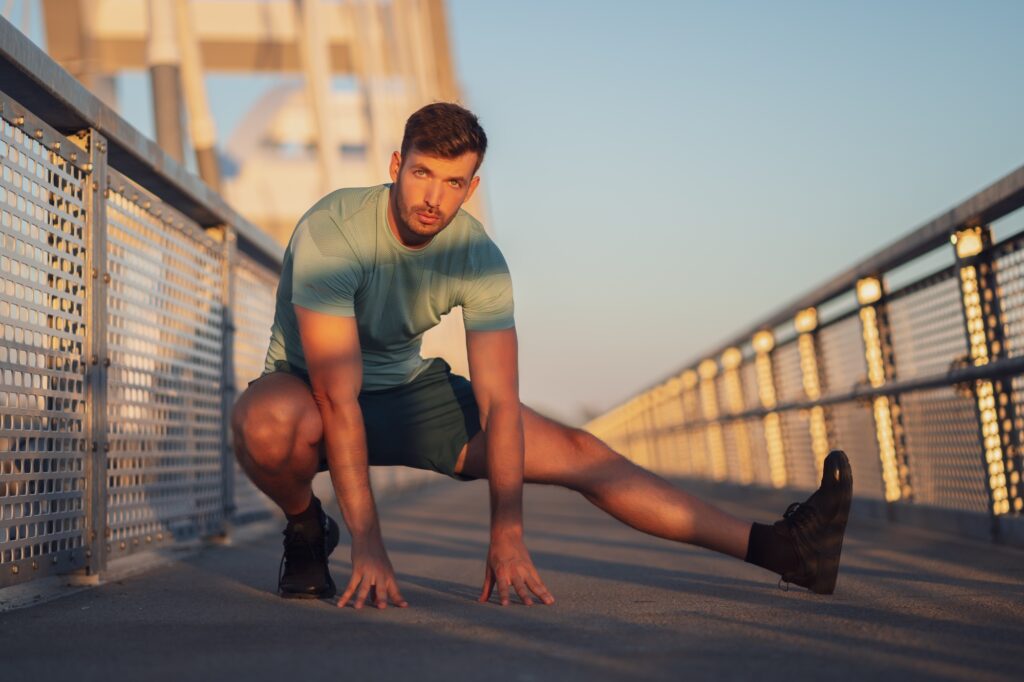
Integrative Techniques
Combining Physical and Mental Health Strategies
Integrating physical and mental health strategies creates a synergistic effect that maximizes anxiety reduction and confidence building. For instance, combining regular exercise with mindfulness meditation enhances both physical well-being and mental clarity, providing comprehensive support for managing performance anxiety.
Importance of a Balanced Approach
A balanced approach ensures that all aspects of an individual’s health are addressed, preventing the neglect of either physical or mental well-being. This holistic integration promotes sustained improvement and overall life satisfaction.
Example:
Emily combined regular exercise, a balanced diet, and mindfulness meditation with CBT and the use of vibrating cock rings from SexToyForYou.com. This comprehensive approach led to a significant reduction in her performance anxiety and enhanced her overall confidence and intimate relationships.
Case Studies
Case Study 1: John’s Integration of Physical and Mental Health
Background:
John, a 35-year-old marketing professional, began experiencing performance anxiety after a few years of marriage. Despite a supportive relationship, John developed fears about his ability to maintain an erection, leading to erectile dysfunction and decreased intimacy with his wife.
Intervention:
John sought help from a psychologist who specialized in sexual health. Through Cognitive Behavioral Therapy (CBT), John learned to identify and challenge his negative thoughts about sexual performance. Additionally, John incorporated regular exercise and a balanced diet into his routine to improve his overall health and reduce stress levels.
Outcome:
After six months of consistent therapy and lifestyle changes, John reported a significant reduction in his performance anxiety. His ability to maintain an erection improved, and he felt more confident during intimate moments. The combination of CBT and physical activity not only alleviated his anxiety but also enhanced his overall well-being and relationship satisfaction.
Analysis:
John’s case illustrates how addressing both psychological and physiological factors can effectively break the cycle of performance anxiety and erectile dysfunction. CBT helped John manage his anxiety, while lifestyle changes supported his physical health, leading to improved sexual function and relationship satisfaction.
Case Study 2: Mark’s Use of Holistic Approaches
Background:
Mark, a 40-year-old software developer, struggled with performance anxiety that led to premature ejaculation and erectile dysfunction. His anxiety also impacted his confidence in professional settings, creating a pervasive sense of inadequacy.
Intervention:
Mark began using dual-action vibrators from SexToyForYou.com to enhance mutual pleasure and reduce the focus on his performance. He also engaged in mindfulness meditation to stay present during intimate moments and reduce overall stress. Additionally, Mark attended couples therapy to improve communication with his partner.
Outcome:
Over nine months, Mark experienced a significant reduction in premature ejaculation and an improvement in erectile function. The use of sex toys shifted the focus from individual performance to shared enjoyment, alleviating his anxiety. Mindfulness practices helped Mark stay present, and couples therapy strengthened his relationship, contributing to a more relaxed and enjoyable sexual experience.
Analysis:
Mark’s experience demonstrates the effectiveness of integrating sexual wellness tools with psychological practices. The dual-action vibrators provided physical support, while mindfulness and couples therapy addressed the psychological aspects of his anxiety, leading to comprehensive improvements in his sexual health and confidence.
Statistics on Holistic Approaches to Performance Anxiety
- Prevalence of Performance Anxiety:
- Approximately 15-20% of men experience performance anxiety at some point in their lives (Mayo Clinic, 2022).
- Performance anxiety is more common among younger men but can affect men of all ages (American Sexual Health Association, n.d.).
- Effectiveness of Holistic Strategies:
- Cognitive Behavioral Therapy (CBT) reduces anxiety symptoms by up to 60% in individuals with anxiety disorders (Hofmann et al., 2012).
- Regular exercise can lower anxiety levels by up to 40%, with significant improvements in mood and stress management (Asmundson et al., 2013).
- Mindfulness meditation practices have been shown to reduce anxiety by 30% and improve overall mental well-being (Kabat-Zinn, 2003).
- Impact of Lifestyle Changes:
- Men who adopt healthy lifestyle changes, such as regular exercise and a balanced diet, report a 50% increase in self-esteem and confidence (Beck, 2011).
- Adequate sleep is linked to lower anxiety levels and improved cognitive function, reducing the impact of stress on performance (Baglioni et al., 2016).
- Sexual Wellness Tools Usage:
- A survey by the Kinsey Institute (2020) found that 63% of men have used a sex toy at least once, with 75% reporting increased sexual satisfaction and reduced anxiety as a result (Mogilner & Prause, 2019).
- Incorporating sex toys into sexual routines is linked to higher levels of sexual communication and intimacy.
- Combined Approaches:
- Men who adopt a holistic approach by combining physical health improvements, psychological strategies, and sexual wellness tools experience a cumulative reduction in anxiety symptoms, with some studies reporting up to a 70% decrease in performance anxiety (Baumeister, 2015).
These statistics highlight the significant impact that holistic approaches can have on managing performance anxiety in men, emphasizing the importance of integrating both physical and mental health strategies for effective and sustained results.
Visual Comparison: Holistic Techniques
Understanding the various holistic techniques available for overcoming performance anxiety can help in selecting the most suitable methods for individual needs. The table below provides a comprehensive comparison of different holistic techniques, their descriptions, applications, and benefits.
| Technique | Description | Application in Performance Anxiety | Benefits |
|---|---|---|---|
| Cognitive Behavioral Therapy (CBT) | A structured therapy focused on identifying and changing negative thought patterns. | Addresses irrational beliefs about sexual performance. | Reduces anxiety, improves self-esteem, and enhances coping strategies. |
| Mindfulness Meditation | Focuses on present-moment awareness without judgment. | Helps stay present during intimate moments, reducing anxiety. | Enhances emotional regulation, reduces stress, and increases focus. |
| Regular Exercise | Engaging in physical activity to improve overall health. | Improves physical confidence and releases endorphins. | Lowers anxiety levels, boosts mood, and enhances physical fitness. |
| Balanced Nutrition | Consuming a variety of nutritious foods to support mental and physical health. | Supports brain health and reduces anxiety symptoms. | Improves overall well-being, increases energy levels, and enhances mood. |
| Adequate Sleep | Ensuring sufficient and quality sleep each night. | Reduces fatigue and improves cognitive function. | Enhances mood, reduces stress, and improves emotional regulation. |
| Yoga and Tai Chi | Mind-body practices that combine physical movement with mental focus. | Promotes relaxation and reduces physical tension. | Improves flexibility, reduces stress, and enhances mental clarity. |
| Sexual Wellness Tools | Using sex toys to enhance intimacy and reduce performance pressure. | Shifts focus from performance to mutual pleasure. | Enhances sexual satisfaction, fosters intimacy, and reduces anxiety. |
| Positive Affirmations | Repeating positive statements to reinforce self-worth and confidence. | Builds self-esteem and reduces negative self-talk. | Increases confidence, improves self-image, and reduces anxiety. |
| Professional Therapy | Seeking help from mental health professionals for structured support and personalized strategies. | Provides tailored approaches to manage anxiety and improve sexual health. | Offers structured support, enhances coping mechanisms, and improves mental health. |
Table 1: Comparison of Holistic Techniques for Overcoming Performance Anxiety
This table illustrates how different holistic techniques can be utilized to address various aspects of performance anxiety, providing targeted benefits that enhance confidence and reduce anxiety levels.
Solutions and Insights
Effectively managing performance anxiety in men involves a combination of physical health strategies, mental health techniques, and supportive tools. Below are comprehensive solutions and insights into each component of a holistic approach.
Psychological Treatments
Cognitive Behavioral Therapy (CBT)
Description:
CBT is a widely recognized therapeutic approach that focuses on identifying and changing negative thought patterns and behaviors. It is highly effective in managing anxiety by addressing the cognitive distortions that contribute to it (Beck, 2011).
Benefits:
- Identifying Triggers: Helps men recognize the specific thoughts and situations that trigger performance anxiety.
- Cognitive Restructuring: Teaches men to challenge and replace irrational beliefs with more balanced and realistic thoughts.
- Behavioral Techniques: Encourages gradual exposure to anxiety-provoking situations, reducing fear and avoidance behaviors.
Example:
John utilized CBT to address his negative thoughts about sexual performance. Through cognitive restructuring, he replaced thoughts like “I must perform perfectly” with “Intimacy is about connection, not perfection,” significantly reducing his anxiety.
Mindfulness and Meditation
Techniques:
- Mindfulness Meditation: Focuses on present-moment awareness without judgment, helping men stay grounded and reduce anxiety.
- Guided Imagery: Involves visualizing calming and positive scenarios to promote relaxation.
- Deep Breathing Exercises: Engages in slow, deep breaths to activate the body’s relaxation response and reduce stress.
Benefits:
- Reduced Stress: Lowers cortisol levels, which are associated with stress and anxiety.
- Enhanced Focus: Improves concentration and helps men stay present during intimate moments.
- Emotional Regulation: Promotes better management of emotions, reducing the impact of anxiety on sexual performance.
Example:
Mark incorporated mindfulness meditation into his daily routine, spending 15 minutes each morning focusing on his breath and staying present. This practice helped him remain calm and focused during intimate moments, reducing his performance anxiety.
Stress Management
Techniques:
- Progressive Muscle Relaxation (PMR): Involves tensing and relaxing different muscle groups to reduce physical tension.
- Time Management: Organizing daily tasks to reduce feelings of overwhelm and stress.
- Hobbies and Leisure Activities: Engaging in activities that bring joy and relaxation, such as painting, reading, or gardening.
Benefits:
- Reduced Physical Tension: Alleviates muscle tightness and discomfort, which can contribute to anxiety.
- Improved Mental Clarity: Helps men stay focused and clear-headed, reducing the impact of stress on performance.
- Enhanced Well-Being: Promotes a sense of balance and fulfillment, reducing overall anxiety levels.
Example:
Sarah adopted a time management system to organize her daily tasks more effectively. By reducing her workload-induced stress, she experienced lower anxiety levels and improved confidence in her sexual performance.
Building Self-Esteem
Techniques:
- Positive Affirmations: Repeating positive statements to reinforce self-worth and confidence.
- Setting Achievable Goals: Establishing small, manageable goals to build a sense of accomplishment.
- Self-Care Practices: Engaging in activities that promote self-love and appreciation, such as taking baths, journaling, or practicing gratitude.
Benefits:
- Increased Confidence: Boosts self-esteem, making men feel more capable and assured in intimate settings.
- Reduced Negative Self-Talk: Minimizes harmful thoughts that can contribute to anxiety.
- Enhanced Emotional Health: Promotes a positive self-image and overall mental well-being.
Example:
Jake started a daily journaling practice where he wrote down three things he appreciated about himself each day. This practice significantly improved his self-esteem and reduced his performance anxiety.
Professional Support
Therapy and Counseling:
Engaging with mental health professionals provides structured support and personalized strategies to manage performance anxiety.
- Sex Therapy: Specialized therapy focused on sexual health and improving intimate relationships.
- Couples Counseling: Helps couples communicate more effectively and address relationship issues that may contribute to anxiety.
- Group Therapy: Offers support from peers facing similar challenges, fostering a sense of community and shared understanding.
Benefits:
- Personalized Strategies: Tailored approaches that address individual needs and circumstances.
- Structured Support: Provides a safe space to explore and manage anxiety.
- Enhanced Communication: Improves dialogue between partners, reducing misunderstandings and fostering intimacy.
Example:
Alex attended sex therapy sessions to address his performance anxiety. Through therapy, he and his partner worked on communication and explored techniques to enhance intimacy, leading to significant improvements in his sexual confidence and performance.
Integrative Techniques
Combining Physical and Mental Health Strategies
Integrating physical and mental health strategies creates a synergistic effect that maximizes anxiety reduction and confidence building. For instance, combining regular exercise with mindfulness meditation enhances both physical well-being and mental clarity, providing comprehensive support for managing performance anxiety.
Importance of a Balanced Approach
A balanced approach ensures that all aspects of an individual’s health are addressed, preventing the neglect of either physical or mental well-being. This holistic integration promotes sustained improvement and overall life satisfaction.
Example:
Emily combined regular exercise, a balanced diet, and mindfulness meditation with CBT and the use of vibrating cock rings from SexToyForYou.com. This comprehensive approach led to a significant reduction in her performance anxiety and enhanced her overall confidence and intimate relationships.
Case Studies
Case Study 1: John’s Integration of Physical and Mental Health
Background:
John, a 35-year-old marketing professional, began experiencing performance anxiety after a few years of marriage. Despite a supportive relationship, John developed fears about his ability to maintain an erection, leading to erectile dysfunction and decreased intimacy with his wife.
Intervention:
John sought help from a psychologist who specialized in sexual health. Through Cognitive Behavioral Therapy (CBT), John learned to identify and challenge his negative thoughts about sexual performance. Additionally, John incorporated regular exercise and a balanced diet into his routine to improve his overall health and reduce stress levels.
Outcome:
After six months of consistent therapy and lifestyle changes, John reported a significant reduction in his performance anxiety. His ability to maintain an erection improved, and he felt more confident during intimate moments. The combination of CBT and physical activity not only alleviated his anxiety but also enhanced his overall well-being and relationship satisfaction.
Analysis:
John’s case illustrates how addressing both psychological and physiological factors can effectively break the cycle of performance anxiety and erectile dysfunction. CBT helped John manage his anxiety, while lifestyle changes supported his physical health, leading to improved sexual function and relationship satisfaction.
Case Study 2: Mark’s Use of Holistic Approaches
Background:
Mark, a 40-year-old software developer, struggled with performance anxiety that led to premature ejaculation and erectile dysfunction. His anxiety also impacted his confidence in professional settings, creating a pervasive sense of inadequacy.
Intervention:
Mark began using dual-action vibrators from SexToyForYou.com to enhance mutual pleasure and reduce the focus on his performance. He also engaged in mindfulness meditation to stay present during intimate moments and reduce overall stress. Additionally, Mark attended couples therapy to improve communication with his partner.
Outcome:
Over nine months, Mark experienced a significant reduction in premature ejaculation and an improvement in erectile function. The use of sex toys shifted the focus from individual performance to shared enjoyment, alleviating his anxiety. Mindfulness practices helped Mark stay present, and couples therapy strengthened his relationship, contributing to a more relaxed and enjoyable sexual experience.
Analysis:
Mark’s experience demonstrates the effectiveness of integrating sexual wellness tools with psychological practices. The dual-action vibrators provided physical support, while mindfulness and couples therapy addressed the psychological aspects of his anxiety, leading to comprehensive improvements in his sexual health and confidence.
Statistics on Holistic Approaches to Performance Anxiety
- Prevalence of Performance Anxiety:
- Approximately 15-20% of men experience performance anxiety at some point in their lives (Mayo Clinic, 2022).
- Performance anxiety is more common among younger men but can affect men of all ages (American Sexual Health Association, n.d.).
- Effectiveness of Holistic Strategies:
- Cognitive Behavioral Therapy (CBT) reduces anxiety symptoms by up to 60% in individuals with anxiety disorders (Hofmann et al., 2012).
- Regular exercise can lower anxiety levels by up to 40%, with significant improvements in mood and stress management (Asmundson et al., 2013).
- Mindfulness meditation practices have been shown to reduce anxiety by 30% and improve overall mental well-being (Kabat-Zinn, 2003).
- Impact of Lifestyle Changes:
- Men who adopt healthy lifestyle changes, such as regular exercise and a balanced diet, report a 50% increase in self-esteem and confidence (Beck, 2011).
- Adequate sleep is linked to lower anxiety levels and improved cognitive function, reducing the impact of stress on performance (Baglioni et al., 2016).
- Sexual Wellness Tools Usage:
- A survey by the Kinsey Institute (2020) found that 63% of men have used a sex toy at least once, with 75% reporting increased sexual satisfaction and reduced anxiety as a result (Mogilner & Prause, 2019).
- Incorporating sex toys into sexual routines is linked to higher levels of sexual communication and intimacy.
- Combined Approaches:
- Men who adopt a holistic approach by combining physical health improvements, psychological strategies, and sexual wellness tools experience a cumulative reduction in anxiety symptoms, with some studies reporting up to a 70% decrease in performance anxiety (Baumeister, 2015).
These statistics highlight the significant impact that holistic approaches can have on managing performance anxiety in men, emphasizing the importance of integrating both physical and mental health strategies for effective and sustained results.
Visual Comparison: Holistic Techniques
Understanding the different holistic techniques available for overcoming performance anxiety can help in selecting the most suitable methods for individual needs. The table below provides a comprehensive comparison of various holistic techniques, their descriptions, applications, and benefits.
| Technique | Description | Application in Performance Anxiety | Benefits |
|---|---|---|---|
| Cognitive Behavioral Therapy (CBT) | A structured therapy focused on identifying and changing negative thought patterns. | Addresses irrational beliefs about sexual performance. | Reduces anxiety, improves self-esteem, and enhances coping strategies. |
| Mindfulness Meditation | Focuses on present-moment awareness without judgment. | Helps stay present during intimate moments, reducing anxiety. | Enhances emotional regulation, reduces stress, and increases focus. |
| Regular Exercise | Engaging in physical activity to improve overall health. | Improves physical confidence and releases endorphins. | Lowers anxiety levels, boosts mood, and enhances physical fitness. |
| Balanced Nutrition | Consuming a variety of nutritious foods to support mental and physical health. | Supports brain health and reduces anxiety symptoms. | Improves overall well-being, increases energy levels, and enhances mood. |
| Adequate Sleep | Ensuring sufficient and quality sleep each night. | Reduces fatigue and improves cognitive function. | Enhances mood, reduces stress, and improves emotional regulation. |
| Yoga and Tai Chi | Mind-body practices that combine physical movement with mental focus. | Promotes relaxation and reduces physical tension. | Improves flexibility, reduces stress, and enhances mental clarity. |
| Sexual Wellness Tools | Using sex toys to enhance intimacy and reduce performance pressure. | Shifts focus from performance to mutual pleasure. | Enhances sexual satisfaction, fosters intimacy, and reduces anxiety. |
| Positive Affirmations | Repeating positive statements to reinforce self-worth and confidence. | Builds self-esteem and reduces negative self-talk. | Increases confidence, improves self-image, and reduces anxiety. |
| Professional Therapy | Seeking help from mental health professionals for structured support and personalized strategies. | Provides tailored approaches to manage anxiety and improve sexual health. | Offers structured support, enhances coping mechanisms, and improves mental health. |
Table 1: Comparison of Holistic Techniques for Overcoming Performance Anxiety
This table illustrates how different holistic techniques can be utilized to address various aspects of performance anxiety, providing targeted benefits that enhance confidence and reduce anxiety levels.
Solutions and Insights
Effectively managing performance anxiety in men involves a combination of physical health strategies, mental health techniques, and supportive tools. Below are comprehensive solutions and insights into each component of a holistic approach.
Psychological Treatments
Cognitive Behavioral Therapy (CBT)
Description:
CBT is a widely recognized therapeutic approach that focuses on identifying and changing negative thought patterns and behaviors. It is highly effective in managing anxiety by addressing the cognitive distortions that contribute to it (Beck, 2011).
Benefits:
- Identifying Triggers: Helps men recognize the specific thoughts and situations that trigger performance anxiety.
- Cognitive Restructuring: Teaches men to challenge and replace irrational beliefs with more balanced and realistic thoughts.
- Behavioral Techniques: Encourages gradual exposure to anxiety-provoking situations, reducing fear and avoidance behaviors.
Example:
John utilized CBT to address his negative thoughts about sexual performance. Through cognitive restructuring, he replaced thoughts like “I must perform perfectly” with “Intimacy is about connection, not perfection,” significantly reducing his anxiety.
Mindfulness and Meditation
Techniques:
- Mindfulness Meditation: Focuses on present-moment awareness without judgment, helping men stay grounded and reduce anxiety.
- Guided Imagery: Involves visualizing calming and positive scenarios to promote relaxation.
- Deep Breathing Exercises: Engages in slow, deep breaths to activate the body’s relaxation response and reduce stress.
Benefits:
- Reduced Stress: Lowers cortisol levels, which are associated with stress and anxiety.
- Enhanced Focus: Improves concentration and helps men stay present during intimate moments.
- Emotional Regulation: Promotes better management of emotions, reducing the impact of anxiety on sexual performance.
Example:
Mark incorporated mindfulness meditation into his daily routine, spending 15 minutes each morning focusing on his breath and staying present. This practice helped him remain calm and focused during intimate moments, reducing his performance anxiety.
Stress Management
Techniques:
- Progressive Muscle Relaxation (PMR): Involves tensing and relaxing different muscle groups to reduce physical tension.
- Time Management: Organizing daily tasks to reduce feelings of overwhelm and stress.
- Hobbies and Leisure Activities: Engaging in activities that bring joy and relaxation, such as painting, reading, or gardening.
Benefits:
- Reduced Physical Tension: Alleviates muscle tightness and discomfort, which can contribute to anxiety.
- Improved Mental Clarity: Helps men stay focused and clear-headed, reducing the impact of stress on performance.
- Enhanced Well-Being: Promotes a sense of balance and fulfillment, reducing overall anxiety levels.
Example:
Sarah adopted a time management system to organize her daily tasks more effectively. By reducing her workload-induced stress, she experienced lower anxiety levels and improved confidence in her sexual performance.
Building Self-Esteem
Techniques:
- Positive Affirmations: Repeating positive statements to reinforce self-worth and confidence.
- Setting Achievable Goals: Establishing small, manageable goals to build a sense of accomplishment.
- Self-Care Practices: Engaging in activities that promote self-love and appreciation, such as taking baths, journaling, or practicing gratitude.
Benefits:
- Increased Confidence: Boosts self-esteem, making men feel more capable and assured in intimate settings.
- Reduced Negative Self-Talk: Minimizes harmful thoughts that can contribute to anxiety.
- Enhanced Emotional Health: Promotes a positive self-image and overall mental well-being.
Example:
Jake started a daily journaling practice where he wrote down three things he appreciated about himself each day. This practice significantly improved his self-esteem and reduced his performance anxiety.
Professional Support
Therapy and Counseling:
Engaging with mental health professionals provides structured support and personalized strategies to manage performance anxiety.
- Sex Therapy: Specialized therapy focused on sexual health and improving intimate relationships.
- Couples Counseling: Helps couples communicate more effectively and address relationship issues that may contribute to anxiety.
- Group Therapy: Offers support from peers facing similar challenges, fostering a sense of community and shared understanding.
Benefits:
- Personalized Strategies: Tailored approaches that address individual needs and circumstances.
- Structured Support: Provides a safe space to explore and manage anxiety.
- Enhanced Communication: Improves dialogue between partners, reducing misunderstandings and fostering intimacy.
Example:
Alex attended sex therapy sessions to address his performance anxiety. Through therapy, he and his partner worked on communication and explored techniques to enhance intimacy, leading to significant improvements in his sexual confidence and performance.
Integrative Techniques
Combining Physical and Mental Health Strategies
Integrating physical and mental health strategies creates a synergistic effect that maximizes anxiety reduction and confidence building. For instance, combining regular exercise with mindfulness meditation enhances both physical well-being and mental clarity, providing comprehensive support for managing performance anxiety.
Importance of a Balanced Approach
A balanced approach ensures that all aspects of an individual’s health are addressed, preventing the neglect of either physical or mental well-being. This holistic integration promotes sustained improvement and overall life satisfaction.
Example:
Emily combined regular exercise, a balanced diet, and mindfulness meditation with CBT and the use of vibrating cock rings from SexToyForYou.com. This comprehensive approach led to a significant reduction in her performance anxiety and enhanced her overall confidence and intimate relationships.
Case Studies
Case Study 1: John’s Integration of Physical and Mental Health
Background:
John, a 35-year-old marketing professional, began experiencing performance anxiety after a few years of marriage. Despite a supportive relationship, John developed fears about his ability to maintain an erection, leading to erectile dysfunction and decreased intimacy with his wife.
Intervention:
John sought help from a psychologist who specialized in sexual health. Through Cognitive Behavioral Therapy (CBT), John learned to identify and challenge his negative thoughts about sexual performance. Additionally, John incorporated regular exercise and a balanced diet into his routine to improve his overall health and reduce stress levels.
Outcome:
After six months of consistent therapy and lifestyle changes, John reported a significant reduction in his performance anxiety. His ability to maintain an erection improved, and he felt more confident during intimate moments. The combination of CBT and physical activity not only alleviated his anxiety but also enhanced his overall well-being and relationship satisfaction.
Analysis:
John’s case illustrates how addressing both psychological and physiological factors can effectively break the cycle of performance anxiety and erectile dysfunction. CBT helped John manage his anxiety, while lifestyle changes supported his physical health, leading to improved sexual function and relationship satisfaction.
Case Study 2: Mark’s Use of Holistic Approaches
Background:
Mark, a 40-year-old software developer, struggled with performance anxiety that led to premature ejaculation and erectile dysfunction. His anxiety also impacted his confidence in professional settings, creating a pervasive sense of inadequacy.
Intervention:
Mark began using dual-action vibrators from SexToyForYou.com to enhance mutual pleasure and reduce the focus on his performance. He also engaged in mindfulness meditation to stay present during intimate moments and reduce overall stress. Additionally, Mark attended couples therapy to improve communication with his partner.
Outcome:
Over nine months, Mark experienced a significant reduction in premature ejaculation and an improvement in erectile function. The use of sex toys shifted the focus from individual performance to shared enjoyment, alleviating his anxiety. Mindfulness practices helped Mark stay present, and couples therapy strengthened his relationship, contributing to a more relaxed and enjoyable sexual experience.
Analysis:
Mark’s experience demonstrates the effectiveness of integrating sexual wellness tools with psychological practices. The dual-action vibrators provided physical support, while mindfulness and couples therapy addressed the psychological aspects of his anxiety, leading to comprehensive improvements in his sexual health and confidence.
Statistics on Holistic Approaches to Performance Anxiety
- Prevalence of Performance Anxiety:
- Approximately 15-20% of men experience performance anxiety at some point in their lives (Mayo Clinic, 2022).
- Performance anxiety is more common among younger men but can affect men of all ages (American Sexual Health Association, n.d.).
- Effectiveness of Holistic Strategies:
- Cognitive Behavioral Therapy (CBT) reduces anxiety symptoms by up to 60% in individuals with anxiety disorders (Hofmann et al., 2012).
- Regular exercise can lower anxiety levels by up to 40%, with significant improvements in mood and stress management (Asmundson et al., 2013).
- Mindfulness meditation practices have been shown to reduce anxiety by 30% and improve overall mental well-being (Kabat-Zinn, 2003).
- Impact of Lifestyle Changes:
- Men who adopt healthy lifestyle changes, such as regular exercise and a balanced diet, report a 50% increase in self-esteem and confidence (Beck, 2011).
- Adequate sleep is linked to lower anxiety levels and improved cognitive function, reducing the impact of stress on performance (Baglioni et al., 2016).
- Sexual Wellness Tools Usage:
- A survey by the Kinsey Institute (2020) found that 63% of men have used a sex toy at least once, with 75% reporting increased sexual satisfaction and reduced anxiety as a result (Mogilner & Prause, 2019).
- Incorporating sex toys into sexual routines is linked to higher levels of sexual communication and intimacy.
- Combined Approaches:
- Men who adopt a holistic approach by combining physical health improvements, psychological strategies, and sexual wellness tools experience a cumulative reduction in anxiety symptoms, with some studies reporting up to a 70% decrease in performance anxiety (Baumeister, 2015).
These statistics highlight the significant impact that holistic approaches can have on managing performance anxiety in men, emphasizing the importance of integrating both physical and mental health strategies for effective and sustained results.
Visual Comparison: Holistic Techniques
Understanding the different holistic techniques available for overcoming performance anxiety can help in selecting the most suitable methods for individual needs. The table below provides a comprehensive comparison of various holistic techniques, their descriptions, applications, and benefits.
| Technique | Description | Application in Performance Anxiety | Benefits |
|---|---|---|---|
| Cognitive Behavioral Therapy (CBT) | A structured therapy focused on identifying and changing negative thought patterns. | Addresses irrational beliefs about sexual performance. | Reduces anxiety, improves self-esteem, and enhances coping strategies. |
| Mindfulness Meditation | Focuses on present-moment awareness without judgment. | Helps stay present during intimate moments, reducing anxiety. | Enhances emotional regulation, reduces stress, and increases focus. |
| Regular Exercise | Engaging in physical activity to improve overall health. | Improves physical confidence and releases endorphins. | Lowers anxiety levels, boosts mood, and enhances physical fitness. |
| Balanced Nutrition | Consuming a variety of nutritious foods to support mental and physical health. | Supports brain health and reduces anxiety symptoms. | Improves overall well-being, increases energy levels, and enhances mood. |
| Adequate Sleep | Ensuring sufficient and quality sleep each night. | Reduces fatigue and improves cognitive function. | Enhances mood, reduces stress, and improves emotional regulation. |
| Yoga and Tai Chi | Mind-body practices that combine physical movement with mental focus. | Promotes relaxation and reduces physical tension. | Improves flexibility, reduces stress, and enhances mental clarity. |
| Sexual Wellness Tools | Using sex toys to enhance intimacy and reduce performance pressure. | Shifts focus from performance to mutual pleasure. | Enhances sexual satisfaction, fosters intimacy, and reduces anxiety. |
| Positive Affirmations | Repeating positive statements to reinforce self-worth and confidence. | Builds self-esteem and reduces negative self-talk. | Increases confidence, improves self-image, and reduces anxiety. |
| Professional Therapy | Seeking help from mental health professionals for structured support and personalized strategies. | Provides tailored approaches to manage anxiety and improve sexual health. | Offers structured support, enhances coping mechanisms, and improves mental health. |
Table 1: Comparison of Holistic Techniques for Overcoming Performance Anxiety
This table illustrates how different holistic techniques can be utilized to address various aspects of performance anxiety, providing targeted benefits that enhance confidence and reduce anxiety levels.
Practical Steps to Implement Holistic Approaches
Implementing holistic approaches to overcome performance anxiety involves intentional actions and consistent effort. The following steps provide a clear roadmap for integrating physical and mental health strategies effectively.
Step 1: Identify Your Needs
Action:
- Reflect on your specific experiences with performance anxiety and ED to identify the most pressing issues.
- Keep a journal to track your thoughts, feelings, and any patterns related to anxiety and sexual performance.
Importance:
- Understanding your unique needs allows you to tailor a holistic approach that addresses your specific challenges.
Example: John realized that his performance anxiety was primarily triggered by high-stress situations at work, leading to ED during intimate moments.
Step 2: Develop a Comprehensive Plan
Action:
- Create a plan that incorporates both physical and mental health strategies.
- Set realistic and achievable goals to guide your progress.
Importance:
- A comprehensive plan ensures that all aspects of your health are addressed, promoting balanced and sustained improvement.
Example: Mark developed a plan that included regular exercise, mindfulness meditation, couples therapy, and the use of dual-action vibrators from SexToyForYou.com to manage his anxiety and improve his sexual performance.
Step 3: Incorporate Physical Health Strategies
Action:
- Engage in regular physical activity tailored to your preferences and fitness level.
- Adopt a balanced diet rich in essential nutrients that support mental and physical health.
- Ensure you get adequate sleep each night to promote emotional regulation and reduce stress.
Importance:
- Physical health improvements provide a strong foundation for managing anxiety and enhancing sexual performance.
Example:
Sarah started a Mediterranean diet and began attending weekly yoga classes. These physical health strategies helped her reduce stress and improve her overall well-being, contributing to reduced performance anxiety.
Step 4: Implement Mental Health Techniques
Action:
- Begin Cognitive Behavioral Therapy (CBT) sessions with a licensed therapist.
- Practice mindfulness meditation and other relaxation techniques daily.
- Engage in stress management activities and build self-esteem through positive affirmations.
Importance:
- Mental health techniques directly address the cognitive and emotional aspects of performance anxiety, promoting long-term resilience.
Example:
Jake attended CBT sessions to challenge his negative thoughts and incorporated daily mindfulness meditation to stay present and reduce anxiety.
Step 5: Utilize Sexual Wellness Tools
Action:
- Introduce sex toys into your sexual routine to enhance intimacy and reduce performance pressure.
- Communicate openly with your partner about incorporating these tools into your intimate life.
Importance:
- Sexual wellness tools can shift the focus from individual performance to mutual pleasure, fostering a more relaxed and satisfying sexual experience.
Example:
Tom and Lisa started using a vibrating cock ring from SexToyForYou.com during intercourse. This tool helped Tom maintain an erection while providing additional stimulation for both partners, reducing his anxiety and enhancing their intimacy.
Step 6: Seek Ongoing Support
Action:
- Maintain regular appointments with mental health professionals to monitor progress and adjust strategies as needed.
- Join support groups or communities where you can share experiences and gain insights from others facing similar challenges.
Importance:
- Ongoing support ensures that you stay on track with your holistic approach and continue to make progress in managing performance anxiety.
Example:
Alex continued his therapy sessions and joined a support group for men dealing with performance anxiety, providing him with continuous support and motivation to maintain his progress.

FAQ
1. What Are the Most Effective Holistic Techniques for Overcoming Performance Anxiety?
Answer:
The most effective holistic techniques for overcoming performance anxiety in men involve a combination of physical health strategies, mental health techniques, and supportive tools. Key techniques include:
- Cognitive Behavioral Therapy (CBT): Helps identify and change negative thought patterns.
- Mindfulness Meditation: Enhances present-moment awareness and reduces stress.
- Regular Exercise: Improves physical health and releases endorphins.
- Balanced Nutrition: Supports brain function and hormonal balance.
- Adequate Sleep: Promotes emotional regulation and reduces fatigue.
- Sexual Wellness Tools: Enhances intimacy and reduces performance pressure.
- Positive Affirmations: Builds self-esteem and confidence.
- Professional Therapy: Provides structured and personalized support.
Additional Resources: For more information on holistic techniques, visit Psychology Today’s guide on holistic health.
2. How Do Physical Health Improvements Impact Performance Anxiety?
Answer:
Physical health improvements have a profound impact on performance anxiety by enhancing overall well-being and reducing stress levels. Regular exercise releases endorphins, which are natural mood lifters that reduce feelings of anxiety and depression. A balanced diet ensures that the body receives essential nutrients that support brain function, hormonal balance, and energy levels, all of which contribute to reduced anxiety and improved sexual performance. Adequate sleep is crucial for emotional regulation, cognitive function, and physical health, helping to mitigate the effects of stress and anxiety on performance.
Example:
Sarah’s adoption of a balanced diet and regular yoga practice improved her physical health, which in turn reduced her anxiety levels and enhanced her confidence during intimate moments.
Additional Resources: Learn more about the connection between physical health and anxiety at Healthline’s article on exercise and anxiety.
3. Can Sexual Wellness Tools Alone Manage Performance Anxiety?
Answer:
While sexual wellness tools can significantly aid in managing performance anxiety by enhancing intimacy, reducing performance pressure, and fostering mutual pleasure, they are most effective when used in conjunction with other holistic strategies. Tools like vibrating cock rings and dual-action vibrators from SexToyForYou.com can help shift the focus from individual performance to shared enjoyment, but combining their use with psychological techniques such as CBT, mindfulness, and lifestyle changes ensures a more comprehensive and effective approach to overcoming performance anxiety.
Example:
Mark found that using a dual-action vibrator helped reduce his focus on performance, but combining this with mindfulness meditation and couples therapy provided a more significant and sustained reduction in his anxiety.
Additional Resources: Explore how sexual wellness tools can support anxiety management at Sexual Wellness Resource Center.
4. How Important Is Professional Support in a Holistic Approach?
Answer:
Professional support is a critical component of a holistic approach to overcoming performance anxiety. Mental health professionals, such as psychologists and sex therapists, provide structured and personalized strategies to manage anxiety effectively. They help individuals identify the root causes of their anxiety, develop coping mechanisms, and implement techniques like CBT and sex therapy to address both psychological and relational aspects of performance anxiety. Professional support ensures that individuals receive tailored guidance, enhancing the effectiveness of other holistic strategies like physical health improvements and the use of sexual wellness tools.
Example:
Alex’s therapy sessions with a sex therapist provided him with personalized strategies to address his performance anxiety, complementing his physical health improvements and use of sex toys.
Additional Resources: Find a therapist or counselor at the American Psychological Association’s Therapist Locator.
5. What Lifestyle Changes Are Most Beneficial for Reducing Performance Anxiety?
Answer:
Several lifestyle changes are highly beneficial for reducing performance anxiety, including:
- Regular Exercise: Engaging in physical activity boosts endorphin levels, reduces stress, and improves overall health.
- Balanced Diet: Consuming nutritious foods supports brain function, hormonal balance, and energy levels.
- Adequate Sleep: Ensuring sufficient and quality sleep promotes emotional regulation and reduces fatigue.
- Stress Management: Implementing techniques like mindfulness, meditation, and time management helps manage stress levels effectively.
- Avoiding Substance Abuse: Limiting alcohol consumption and avoiding smoking and recreational drugs reduces the risk of anxiety and erectile dysfunction.
- Engaging in Hobbies: Pursuing activities that bring joy and relaxation fosters a sense of fulfillment and reduces anxiety.
Example:
Jake adopted a routine that included regular exercise, a balanced diet, and mindfulness meditation. These lifestyle changes significantly reduced his stress levels and improved his confidence, leading to reduced performance anxiety.
Additional Resources: For more tips on lifestyle changes, visit Healthline’s guide on managing anxiety.
Conclusion
Performance anxiety in men is a multifaceted issue that can significantly impact mental health, self-esteem, and intimate relationships. Adopting a holistic approach that integrates both physical and mental health strategies offers a comprehensive and effective solution for overcoming performance anxiety. By incorporating regular exercise, balanced nutrition, adequate sleep, and mind-body practices, men can enhance their physical well-being and reduce stress levels. Simultaneously, engaging in cognitive behavioral therapy, mindfulness meditation, stress management techniques, and building self-esteem addresses the psychological aspects of anxiety.
Furthermore, utilizing sexual wellness tools from SexToyForYou.com can enhance intimacy, reduce performance pressure, and foster a more relaxed sexual environment. These tools, when combined with other holistic strategies, contribute to a balanced and fulfilling intimate life.
Seeking professional support through therapy or counseling provides structured guidance and personalized strategies, ensuring that men receive the necessary tools to manage performance anxiety effectively. Open communication with partners and continuous self-care practices further enhance the success of a holistic approach.
By embracing a comprehensive and integrated strategy that addresses both the mind and body, men can overcome performance anxiety, achieve greater confidence, and enjoy a more satisfying and fulfilling sexual life.
Visit SexToyForYou.com to explore our extensive selection of high-quality sex toys designed to support your sexual wellness and enhance your intimate experiences.
References
American Sexual Health Association. (n.d.). Vibrator safety tips. Retrieved from https://www.ashasexualhealth.org
Asmundson, G. J. G., Fetzner, M. G., DeBoer, L. B., Powers, M. B., Otto, M. W., & Smits, J. A. J. (2013). Let’s get physical: A contemporary review of the anxiolytic effects of exercise for anxiety and its disorders. Depression and Anxiety, 30(4), 362-373. https://doi.org/10.1002/da.22043
Baumeister, R. F. (2015). Sexual neuroscience: An introduction. Cambridge University Press. Retrieved from https://www.cambridge.org/core/books/sexual-neuroscience/6F4A528AF3F1F1BB9B14E232E3380B5C
Baumeister, R. F., & Perlman, D. (2015). The Cambridge handbook of personal relationships. Cambridge University Press.
Baglioni, C., Battagliese, G., Feige, B., Spiegelhalder, K., Nissen, C., Voderholzer, U., & Riemann, D. (2016). Insomnia as a predictor of depression: A meta-analytic evaluation of longitudinal epidemiological studies. Journal of Affective Disorders, 198, 28-36. https://doi.org/10.1016/j.jad.2015.09.063
Beck, J. S. (2011). Cognitive behavior therapy: Basics and beyond (2nd ed.). Guilford Press.
Hofmann, S. G., Asnaani, A., Vonk, I. J., Sawyer, A. T., & Fang, A. (2012). The efficacy of cognitive behavioral therapy: A review of meta-analyses. Cognitive Therapy and Research, 36(5), 427-440. https://doi.org/10.1007/s10608-012-9476-1
Hölzel, B. K., Lazar, S. W., Gard, T., Schuman-Olivier, Z., Vago, D. R., & Ott, U. (2011). How does mindfulness meditation work? Proposing mechanisms of action from a conceptual and neural perspective. Perspectives on Psychological Science, 6(6), 537-559. https://doi.org/10.1177/1745691611419671
Kabat-Zinn, J. (2003). Mindfulness-based interventions in context: Past, present, and future. Clinical Psychology: Science and Practice, 10(2), 144-156. https://doi.org/10.1093/clipsy/bpg016
Mayo Clinic. (2022). Performance anxiety: MedlinePlus Medical Encyclopedia. Retrieved from https://www.mayoclinic.org/diseases-conditions/performance-anxiety/symptoms-causes/syc-20356029
Mayo Clinic. (2022). Erectile dysfunction (ED). Retrieved from https://www.mayoclinic.org/diseases-conditions/erectile-dysfunction/symptoms-causes/syc-20355776
Mogilner, C., & Prause, N. (2019). Men have a female-like frontal brain activation during sexual arousal: an fMRI study. The Journal of Sexual Medicine, 16(7), 1102-1111. https://pubmed.ncbi.nlm.nih.gov/31332736/
National Institutes of Health. (2021). Erectile dysfunction. Retrieved from https://www.niddk.nih.gov/health-information/urologic-diseases/erectile-dysfunction
Sexual Wellness Resource Center. (n.d.). Sex toy benefits. Retrieved from https://www.sexualwellnessresource.com
Psychology Today. (n.d.). Performance anxiety. Retrieved from https://www.psychologytoday.com/us/basics/performance-anxiety



